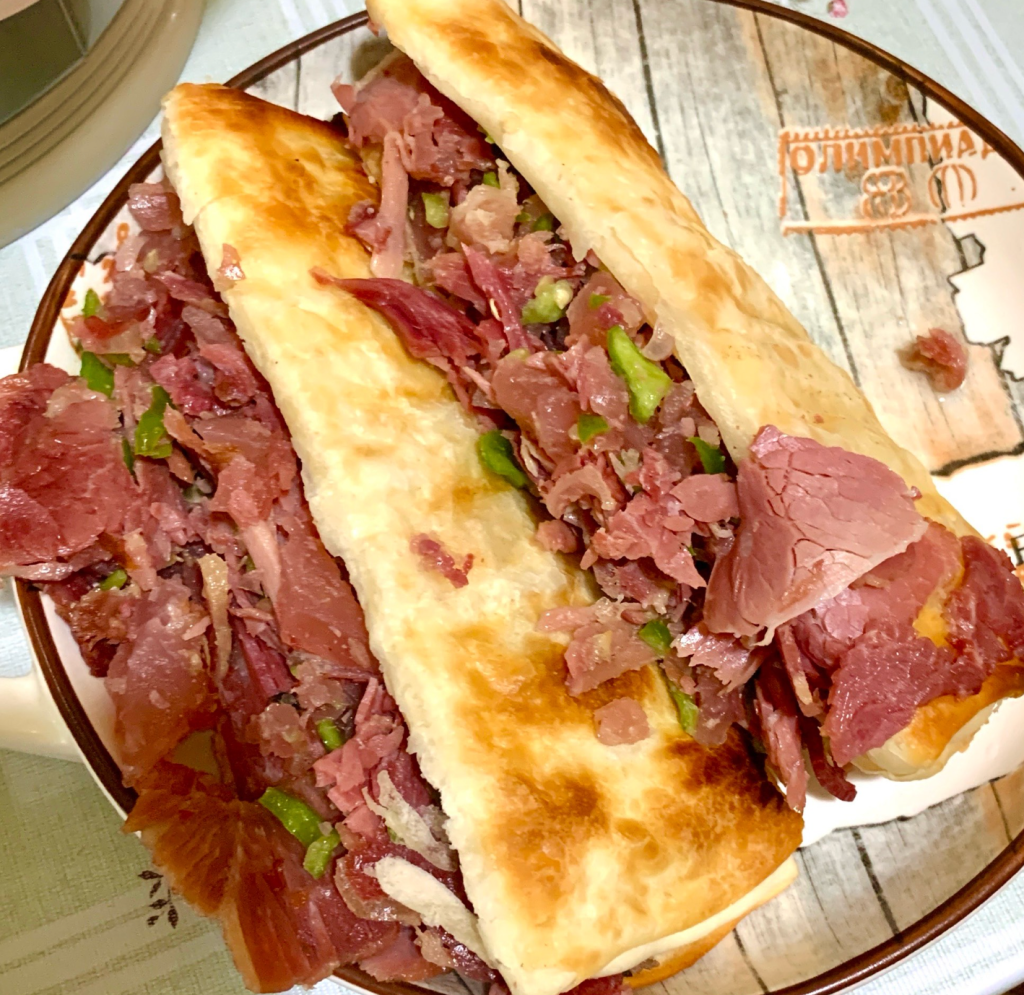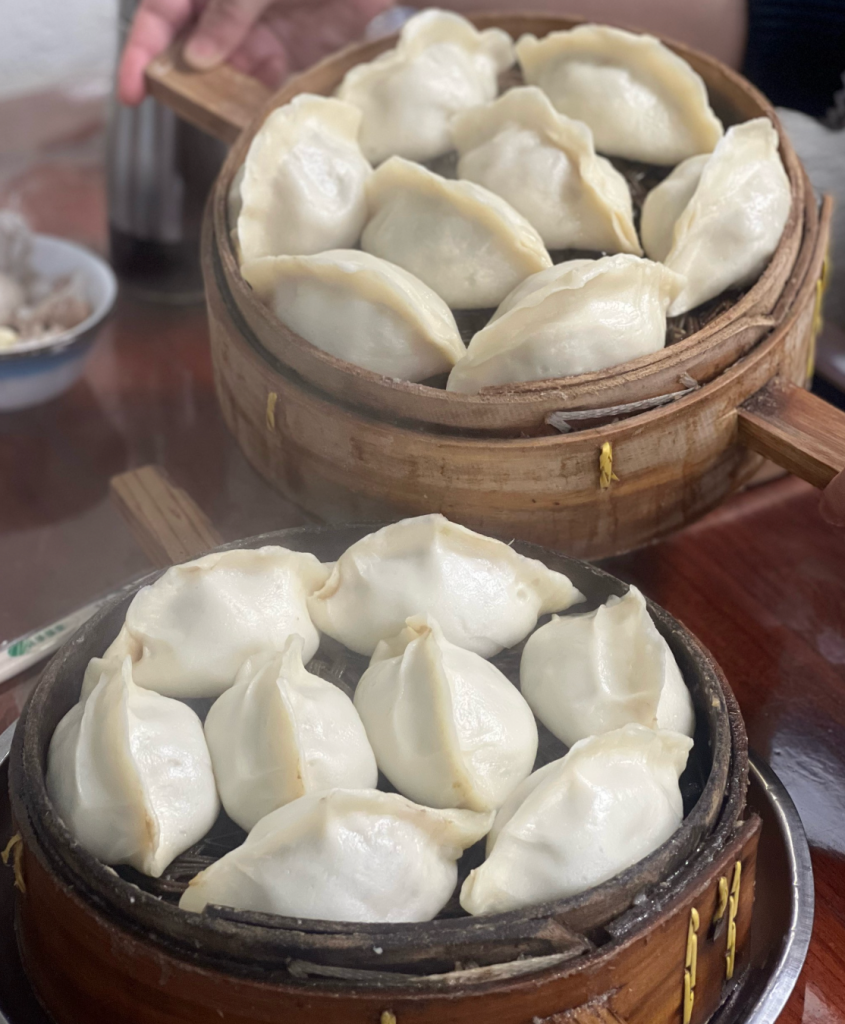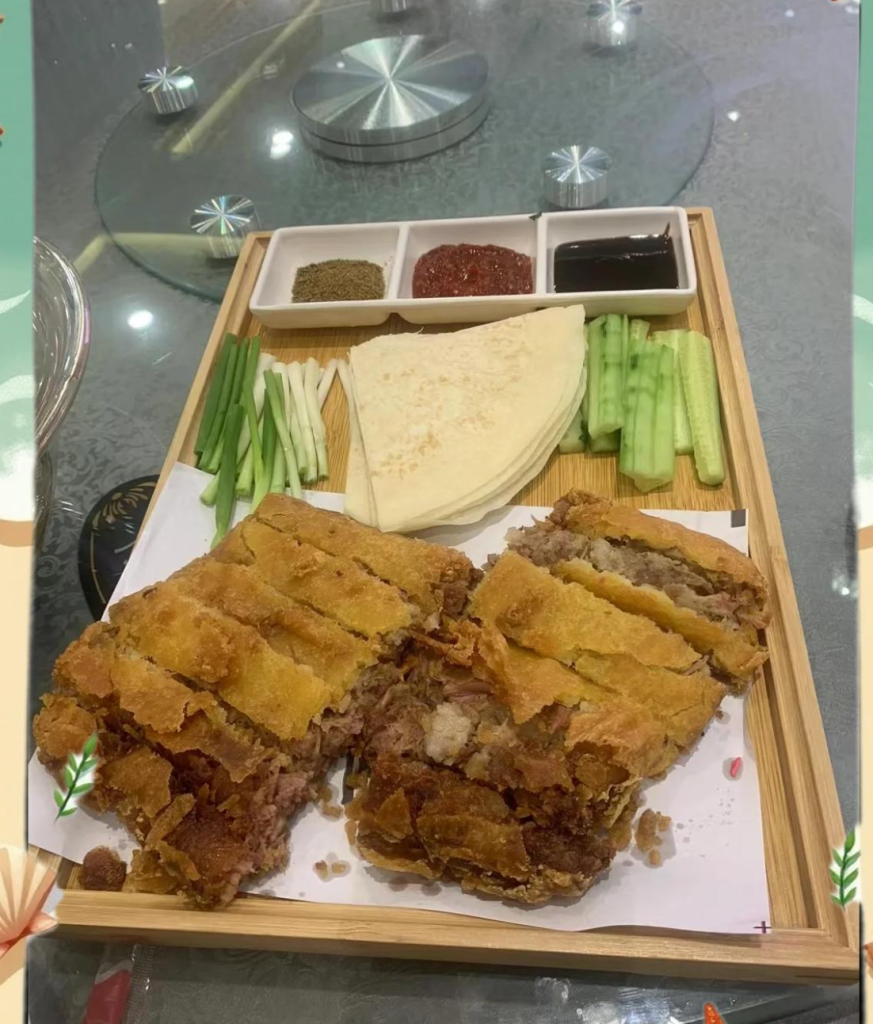Baoding Delicacies: A Taste of Northern China’s Culinary Treasures
Baoding, a historic city in Hebei Province, is not just a hub of imperial history—it’s also a paradise for food lovers. Its cuisine, rooted in northern Chinese flavors, blends savory, hearty, and aromatic tastes, with dishes passed down for centuries. From iconic street snacks to royal-inspired feasts, here’s a guide to Baoding’s must-try foods.
1. Donkey Burger (Lürou Huoshao): The City’s Icon
No trip to Baoding is complete without biting into a donkey burger—the city’s most famous snack, often called “Baoding’s soul food.” This simple yet delicious treat features slow-cooked donkey meat stuffed into a crispy, golden-brown baked flatbread.

The meat is simmered for 6–8 hours with star anise, cinnamon, and other spices, making it tender and rich in flavor. The flatbread, known as “huoshao,” is baked in a clay oven until it’s crunchy on the outside and soft inside. Locals love it for breakfast or a quick lunch, often paired with a bowl of warm donkey bone soup (lügu tang) to balance the savory taste.
For the best donkey burger, head to Laobai Lürou Huoshao, a century-old shop on South Street. Their classic version costs just ¥12, and you can add extra meat for ¥5 more.
2. Baiyunzhang Baozi: Steamed Buns with a Royal Touch
Baiyunzhang Baozi (Baiyunzhang steamed buns) are another Baoding staple, with a history dating back to 1919. Created by the Bai family, these buns were once served to Qing Dynasty nobles and are known for their thin skin, juicy filling, and delicate taste.

The most popular filling is pork with scallions, but you can also try vegetarian options like cabbage and vermicelli. Each bun is carefully folded into 18 pleats—a sign of good craftsmanship. When you bite into one, the hot broth inside (from the pork fat melting during steaming) bursts in your mouth, so be sure to blow on it first!
Visit the original Baiyunzhang Restaurant near Zhili Governor’s Office. A plate of 10 buns costs ¥30, and they’re best eaten hot with a side of vinegar.
3. Guobao Zhouzi: Crispy Braised Pork Elbow
For a more hearty dish, try Guobao Zhouzi (crispy braised pork elbow). This dish is a favorite at family gatherings and festivals, featuring a whole pork elbow cooked until the skin is crispy and the meat is fall-off-the-bone tender.

The elbow is first marinated in soy sauce, sugar, and spices, then deep-fried to crisp the skin, and finally braised in a savory sauce for hours. The result is a dish that’s crispy on the outside, juicy on the inside, and not too greasy. It’s often served with steamed buns or rice to soak up the sauce.
You can find this dish at most local restaurants, but Baoding Grand Hotel makes a standout version—their elbow is served with a side of pickled vegetables to cut through the richness, priced at ¥68 per serving.
4. Li Hongzhang Huicai: A Feast in a Bowl
Li Hongzhang Huicai (Li Hongzhang stew) is a famous dish with a fun history. It’s named after Li Hongzhang, a Qing Dynasty official from Zhili (modern-day Hebei), who created it to feed his hungry soldiers. Today, it’s a comforting stew filled with ingredients like pork, chicken, shrimp, tofu, and bamboo shoots.
The stew is simmered in a thick, creamy broth made from chicken and pork bones, giving it a rich, umami flavor. Every spoonful has a mix of textures—tender meat, chewy tofu, and crisp vegetables. It’s perfect for cold winter days, warming you up from the inside out.
Try it at Xinghua Lou, a traditional restaurant near the Ancient Lotus Flower Pond. A large bowl (enough for 2–3 people) costs ¥88.
5. Local Snacks: Small Bites, Big Flavors
Baoding’s street food scene is full of hidden gems. Don’t miss douzhi (fermented mung bean milk)—a savory drink with a unique tangy taste, often paired with crispy fried dough sticks (youtiao). For something sweet, try mahua (twisted fried dough), coated in sugar or sesame seeds, sold by street vendors for ¥2 each.
Baoding’s food tells the story of its history—simple, hearty, and made with care. Whether you’re grabbing a donkey burger on the go or sitting down for a bowl of Li Hongzhang stew, every bite is a taste of the city’s warm, northern charm.
